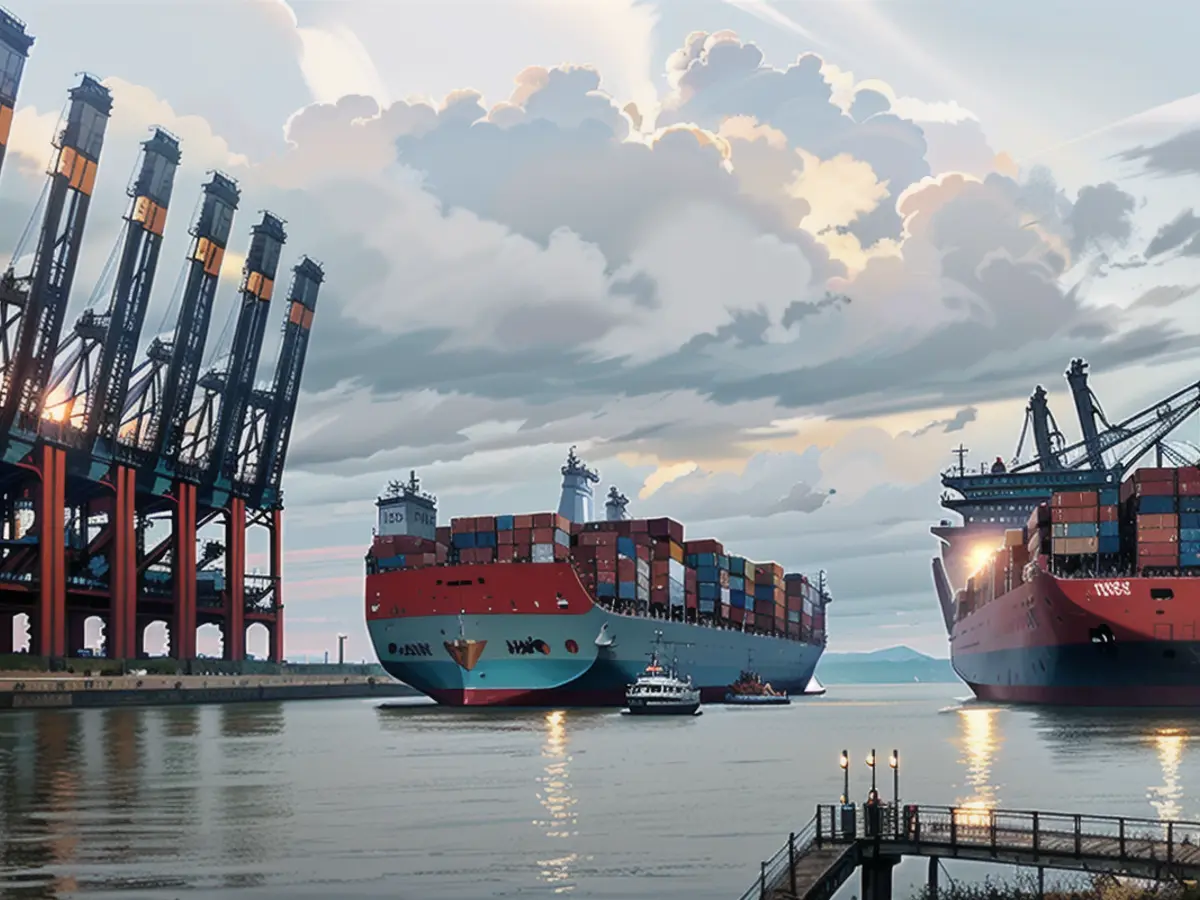Maersk expresses uncertainty about Hamburg's port future.
Hamburg isn't thrilled with this news: the head of Maersk shipping company proposes replacing the city's container terminals with apartment buildings. To Hamburg residents, the port is a crucial part of their identity. But to Clerc, the CEO of the world's second-largest container shipping company Maersk, the location is losing its significance. "No, Hamburg isn't the world's natural gateway," he told Die Zeit. As a Hamburg taxpayer, he'd wonder if it's worth spending hundreds of millions of euros annually on this port. The city would need to spend over 100 million euros just to keep the Elbe fairway deep enough for large ships.
"That's a huge sum of money when you consider there's a more efficient port with sufficient depth 100 kilometers away: Bremerhaven," Clerc adds. While he holds shares in Bremerhaven's port, he confirms its superiority: "There are modern facilities there."
According to Clerc, Maersk handles a lot of cargo in Hamburg, but as we consider this objectively, "No, Hamburg isn't the world's natural gateway for exporting German cars, for example." Emotionally, Hamburgers might agree, but then again, if you assess it logically, "Is all the land on the waterfront better used for affordable housing than container terminals?"
HHLA Suffers Major Losses
Just as the mega-shipping company MSC is about to join forces with HHLA, the Hamburg port logistics group reports a significant plunge in profits. As announced, HHLA's operating profit in the first quarter dropped by nearly a quarter to €13.7 million. The crisis in the Red Sea led to significant delays and downtime at the port operator's locations. As Titzrath, the group CEO, explained, "Ships arrived late, which also affected HHLA's container terminals and overland transport."
The company also handles the intermodal business, including rail and road transportation. With Houthi rebel attacks on Yemen, shipping companies are avoiding the Red Sea and Suez Canal - the shortest sea route from Southeast Asia to Europe. Instead, freighters are taking the longer route around the southern tip of Africa.
In these challenging times for Germany's busiest port, MSC is jumping in to become a stakeholder. The City of Hamburg remains the majority owner, but must seek approval from the Hamburg City Parliament and the EU Commission for the project.
Read also:
- Lack of snow also opens up new opportunities for winter tourism
- Abrupt end to e-car subsidies
- The chemical industry has little confidence
- Intersport boss hopes for sales boom through sporting events
Despite Maersk's uncertainty about Hamburg's port future, the city's port operator HHLA continues to struggle. In the first quarter, HHLA reported a significant decrease in profits due to delays and downtime caused by the crisis in the Red Sea.
Moeller-Maersk, the head of the world's second-largest container shipping company, sees potential for investment in Bremerhaven's more efficient port, just 100 kilometers away from Hamburg.
Source: www.ntv.de








